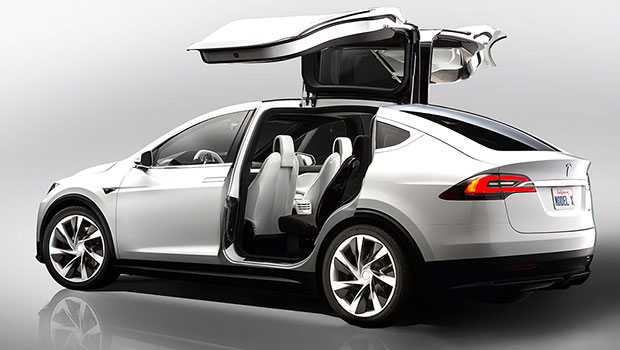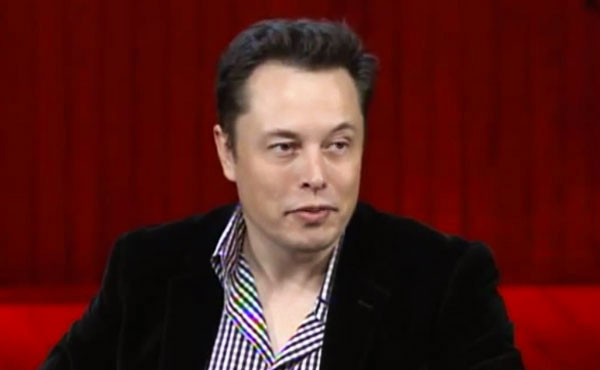Elon Musk must have been channeling ex-Microsoft CEO Steve Ballmer last week, when he commented to the German Press (he does get that this Internet thing takes his comments global, right?) that Apple wasn’t poaching Tesla’s good employees, it was getting folks who couldn’t cut it at Tesla. Apple apparently has been paying a lot for ex-Tesla talent.
That undoubtedly is true of some of the employees who have moved between both firms, but it’s very unlikely that it is true of all of those employees. What’s worse is that bad-mouthing ex-employees can be actionable, and experienced CEOs should know better.
What this showcases, I think, is that Musk is worried about Tesla’s survival and is attacking Apple preemptively, in much the same way that cellphone makers did ahead of Apple’s entry into the smartphone market. That strategy worked swimmingly for firms like Palm, which dominated the market at the time — so much so that some now are gone, and Apple is the most profitable of the group.
If Apple should do the same thing with electric cars, then Tesla would be the new Palm, and Musk would be crapping bricks (technical term) — which would explain his sensitivity to the topic.
Given that Jobs and Musk actually are very similar in key ways, I wonder if this fight could be a proxy for what might have happened had Cook and Jobs competed with each other. I’ll consider that and close with my product of the week: the Tesla X, which may be the best Tesla value yet, because on top of the other subsidies, it is uniquely eligible for a whopping $25K tax deduction in the year purchased.
iPhone Lesson
I was one of the folks who didn’t think Apple had a chance being successful with a smartphone, particularly after I saw it. I had a lot of good reasons, which in hindsight were worth zip. Screenphones weren’t selling. Apple would have to sell through carriers and not directly. The market already was dominated by large powerful companies, and Apple’s first attempt at a phone (the ROKR) sucked.
Pretty much everyone from Samsung to Microsoft made fun of Apple’s effort, and the end result was they really didn’t take it seriously until they suddenly realized that Apple owned the market. (Kind of reminds us of Trump and the Republican Party this year). Only Google, because its CEO was on Apple’s board at the time, had a viable response — and it basically was to copy Apple and give away the result, Android, for free. (It also showcased that the “don’t be evil” thing was BS.)
So what was the lesson? It was that Apple’s loyal base of customers had become so large that it could get the company to critical mass immediately — and that Apple was so much better with the user experience and in making app developers money that jumping from critical mass to leadership could happen amazingly fast. Unfortunately for Tesla, that could play well for cars too, and Apple has several hundred billion more than Tesla to fight the fight.
Tesla’s Dominance
Tesla isn’t Palm, but it is even more dominant in electric cars. However, until a few weeks ago, it had a line that consisted of one car that came in different engine and trim configurations, which priced in near-supercar category. No less an authority than Consumer Reports listed the car as the best it ever tested.
Tesla emulates Steve Jobs’ Apple in a ton of ways. It has an iconic, charismatic CEO with a deep love of showmanship. It sells its cars in Tesla stores in high-traffic, affluent locations. It offers a very limited and focused product line (remember, the initial iPod came only in one model and color). In fact, if you squint a little bit, Tesla is much like what Steve Jobs initially built around the iPod/iPhone/iPad in terms of execution.
The Apple Car
So, if we think of Tesla as kind of the ultimate model of what Jobs would have done had he built a car rather than an MP3 player, we could look at what Cook is likely to do with the Apple car as a proxy for a Jobs/Cook competition. Also, while Tesla is established, it is losing US$4,000 on every car it sells and is in a very real danger of going under, according to a recent Road & Track column byBob Lutz, who worked on the Ford Explorer, Dodge Viper, Pontiac GTO and Cadillac SRX, and authored the book Icons and Idiots. (He isn’t a fan).
Apple, on the other hand, is approaching $300 billion in reserves and arguably could buy both Ford and General Motors for cash, so going out of business isn’t a huge concern for Cook. Also, Cook likely would come to market with a real line of car products, and he already has a huge number of storefronts that could market Apple cars.
Apple knows a bit about batteries as well, given that most of its products use them, and it is far more advanced in computer technology — particularly given that it already has partnered with IBM.
It is widely expected that the Apple car will be self-driving at launch. Apple still has a massive number of fans. Even though Tesla drivers likely are iPhone users, by and large, I would guess that if it came to a choice, a significant number would migrate to the Apple car. iPhone users are the superset — there are millions more than Tesla users — suggesting a total available market for Apple that could exceed Tesla’s by at least a magnitude.
Jobs vs. Cook
This is where it gets interesting. Apple was on the ropes when Jobs took it over, and he had to roll against incredibly well-funded companies like Microsoft. I think you could argue that Jobs did OK, and he actually grew Apple’s loyal customer base massively over the objections of better-funded companies.
This time around, the proxy for Jobs — Musk — has a similar set of tools, while Cook’s skills are far closer to those of Microsoft ex-CEO Steve Ballmer. So this could be a rematch of what happened between the iPod and Zune, but with different players. However, both parties are aware of that earlier fight and can learn from it.
Wrapping Up: Who Wins?
I think the winner will come down to two things: 1) how well Apple’s initial offering does from the standpoint of its existing loyal base — Apple can’t disappoint its base if it wants to get to critical mass; and 2) how many of Tesla’s current problems Musk can solve before Apple enters the market. Among other things, Tesla needs to offer a complete line of products that it can sell in every state.
The outcome is too close to call, but in a world increasingly worried about global warming, the fact that two companies are competing in the U.S. for which can make the best self-driving electric car means that regardless of whether Tesla or Apple wins, we win — and I’m good with that.
I actually may end up buying the Tesla Model X, as here in Bend, Oregon, we have the near-perfect mix for an electric SUV. Typical distance driven is short; electrical power comes mostly from dams, so it is cheap; and it does snow here, which makes a 4-wheel drive SUV more useful than a sedan or sports car (though the ideal form factor likely would be a pickup truck). Oh, and a lot of folks have boats, so the towing capacity wouldn’t hurt.

There has been a lot said about the gull wing rear doors, and given that I hated the gull wing doors on the old Mercedes SLS AMG, you’d think I’d hate these. However, the issue with the Mercedes doors was that you couldn’t reach to close them if you were short, and you hit your head on them a lot if you were tall — I literally almost knocked myself out one day.
The Tesla doors are electric, resolving the short problem, and they open really high, so you don’t hit your head. They also take less space on the side, and rear doors are often where you get the most paint damage. So I like them.
SUVs are the trendier mini-van and, they are often used for taking the kids to school, runs to the store, and in our case, trips to the dog park. Electrics are ideal for short hops. The Model S feels more like a long-distance car, which really isn’t ideal for an electric. The SUV form should be a better match for how these things actually are used. (Despite what Range Rover seems to think, few of us ever take these things off road, which admittedly would be an issue for the range-limited electric.)
Even in that case, off-road trips rarely exceed 100 miles and typically involve driving very slowly over large obstacles. The individual-wheel drive available to an electric, on paper, should be better than gas, as should having 100 percent of the torque from start.
Now, the folks over at Green Car Reports think it will suck off-road, but given its armored belly, adjustable height, torque and individual-wheel drive, I’m not so sure. We’ll have to wait and see.
In any case, given the Model S has been the best car in the world, I’m thinking the Model X could be the best crossover — and maybe SUV — and since I want one, it is my product of the week.

























































Considering Consumer Reports just nixed Tesla in reliability surveys from owners. I would say Tesla is not such a great source for talent? But then again Apple and a autonomous auto does not sound attractive either given Apple’s inability to even put out a stable OS on initial release anymore. Maybe the question is, can anyone really do well in bleeding edge programs? We have seen plenty problems with Musks and his rocket projects too.
What I find AM azing is how Musk seems more interested in addressing negative news about his products then admitting to them and addressing them. I think Tesla’s are great in terms of technology, but if basic quality of the product fails to impress then the advancements don’t outweigh the failures. In the end a product sold is based on costs, reliability, and value. The expectations go up when the costs go up. I would expect a Tesla not to have the basic flaws that a base model auto would have. I would expect everything to work well for a long time. My feeling about Apple products has also diminished last few years as quality, stability, and value have been reduced in my opinion. As one engineer put it. The people today are allowing too many things to fall through the cracks in order to keep costs down. Its why we have recalls,products failing early, and unhappy customers.
The big differences between Musk and Jobs is that Musk is really well educated and Jobs really got how marketing works and Musk clearly doesn’t. Perception rules and Musk just doesn’t seem to get that (you can hire folks with engineering skills).